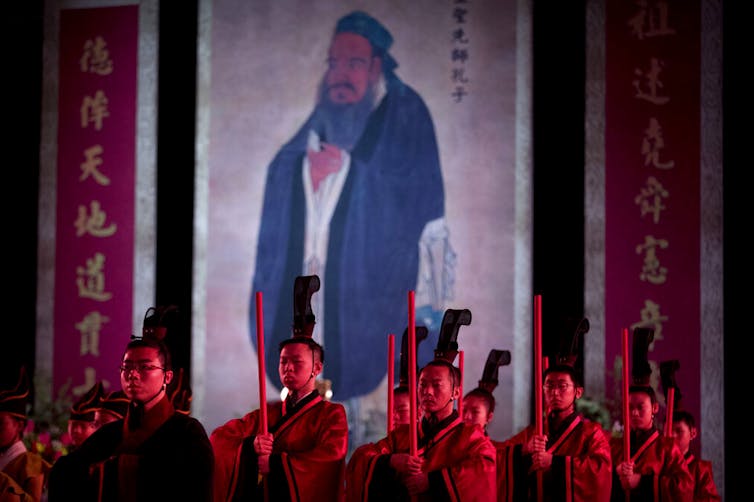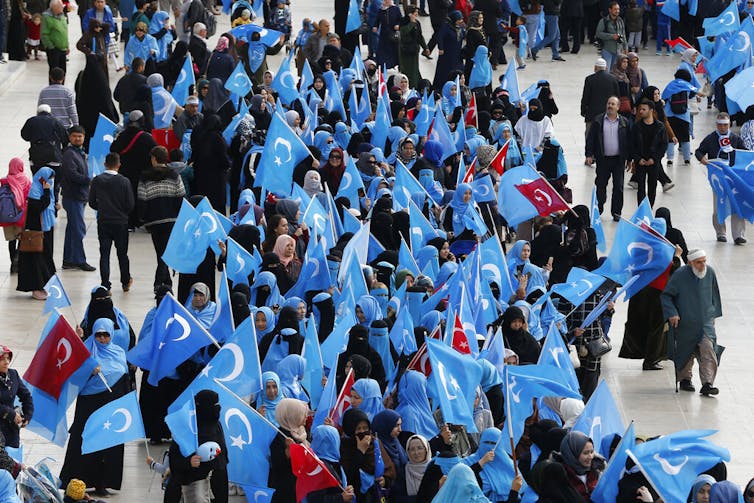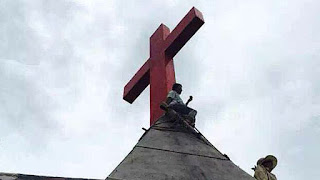And what helps us most to understand our neighbors’ faiths?
Ryan Burge
Religion News Service
February 15, 2023
(RNS) — One of the truly unique features of the United States is its incredibly diverse religious landscape. A county or region dominated by a single religious group is the exception, not the rule. Scholars have pointed to this religious competition as one of the reasons religion is still relatively robust in the U.S. compared with other industrialized societies, such as Western Europe.
It would behoove those of us living in the United States, then, to have a decent working knowledge of faith traditions beyond our own. But our religious diversity often comes at a cost: intolerance and infighting, often driven by mutual ignorance. As the writer Andrew Smith once wrote, “People fear what they don’t understand.”
There is also a gap between Americans’ confidence in their grasp of the nuances of other religious traditions and their actual religious literacy, according to data from the Pew Research Center posted by the Association of Religion Data Archives.
Pew asked individuals to assess their level of knowledge about a variety of faith traditions, from different types of Christians (evangelical and mainline Protestants, Catholics and Mormons) to faith groups that make up a smaller portion of the population, such as Jews, Muslims and Buddhists.
Americans, it turns out, feel they have a good idea of their neighbors’ faiths.
“How much do you personally know about each of the following?” Graphic by Ryan Burge
Given the ubiquitousness of Catholicism in the United States, it should come as no surprise that 82% of respondents said that they knew “some” or “a lot” about the Catholic Church. Respondents also expressed familiarity with Protestantism. It’s notable that 68% expressed a strong familiarity with atheism, given that atheists make up less than 10% of the United States.
The faith groups that were less understood are, unsurprisingly, ones that comprise the smallest parts of American religion today. More than half of respondents said that they knew “nothing” or “not much” about the practices or beliefs of Muslims, Buddhists and Hindus, and fewer than 1 in 10 said they knew a lot about those faith traditions.
Familiarity, then, seems to be related to exposure to the faith in question.
But perception of knowledge and actual knowledge are two different concepts, entirely. The Pew American Trends Panel also included a religious literacy battery that consisted of eight questions about different faith traditions found in the United States. These questions were offered in multiple-choice format — with three potential answers listed. But they also allowed respondents to say they were unsure of the correct answer.
“Can Americans Answer Basic Religious Literacy Questions Correctly?” Graphic by Ryan Burge
The one question that the overwhelming number of respondents knew the correct answer to is “What is an atheist?” Nearly 9 in 10 respondents correctly indicated that atheists are “someone who does not believe in God.” But strong majorities were also able to associate Moses with the Exodus and knew that David killed Goliath, both stories from the Old Testament.
Religious literacy rates dropped significantly from that point. Just 62% of people knew that Mecca is the holiest city in Islam; nearly the same number could accurately describe the beliefs of agnostics. The Ten Commandments and the Sermon on Mount also seemed to stump many respondents, even though large majorities are aware of who Moses was.
When given a list of three possible commandments, a third of people incorrectly believed that “Do unto others as you would have them do unto you” was part of the Decalogue. A bare majority correctly answered the question “According to the Christian Gospels, who delivered the Sermon on the Mount?”
The question that clearly caused the most trouble concerned Rosh Hashanah and its meaning for people of the Jewish faith. Nearly half of the sample refused to answer the question.
Given these blind spots, it’s worth asking which factors increased religious literacy among the respondents. To test that, an additive scale was constructed, taking in all answers to the questions in the battery, with scores ranging from zero questions correct to all eight questions answered correctly. The survey also asked respondents about their level of educational attainment and whether they had taken a world religions class in high school or college.
“More Educated Individuals Have Higher Levels of Religious Literacy” Graphic by Ryan Burge
Those with higher levels of educational attainment answered more of the questions correctly — little surprise there. Among those with a high school diploma or less, the mean score was about four questions out of eight. Among those who had completed a four-year college degree, the mean score was about six questions correctly answered.
What’s noteworthy, however, is how much taking a world religions class helped with religious literacy. At each level of educational attainment, a person who took world religions classes scored about half a point better than those who did not take a world religions class. This is clear and measurable evidence that these courses have a long-term impact on knowledge about faith traditions.
An average score of four out of eight questions answered correctly is commendable for someone who has had few encounters with other faiths, as many Americans have not. But the country is if anything becoming more religiously diverse — and, famously, more politically polarized. Zeenat Rahman, executive director of the University of Chicago Institute of Politics, has argued that increased religious literacy could lead to a decrease in polarization. It is sure to come in handy for those of us who imagine we know and welcome our neighbors.
https://religionnews.com/2023/02/15/how-much-do-americans-know-about-the-faiths-around-them/














